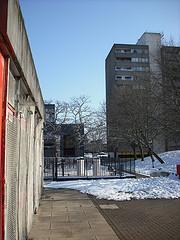Maritime Ltd Workers
Others for which the philosopher Jose Orlando Melo Naranjo is one of the scientists philosophers more young people who owns the country. It has a large number of published works. in his last statement can assure the country advances little by little investment in education, since the largest investment in colombia this 12thcentury war, reason by which the brains of colombia are runaways, otherwise live practically destitute, as it happens with the Colombian teachers. Since the State looks at them as tools and a number more than workers. rather contradictory is that the State talk about education, because liciada is left behind the poor, but vigorous for the rich.
Since it is better a high number of workers and a select number of bourgeois power. If it is false teaching communal and veran observed condition economic in which lives a teaching common in colombia. a miserable devoid of cents to continue studying and to sustain your family with dignity the State prefers promoting students to other degree automatic. whether workers will be more unconscious. I’m not revolutionary, weapons bring slavery and misery. the force never primary over reason. Blogs related Travel Channel time to travel Blog Archive Holy Land Tour Juan Chester Blog why I think that the concept of freedom to the unknown God < Nietzsche camel, the lion and the child GEO Monitor IPO Newsflash: soul Maritime Ltd. ResearchOracle.com politicians kill each other and ignore it Shortening Walnut Yo-Yo for cracking all your nuts by Xiaofei Wang and Beibei Greenspan offers a mixed mea culpa ignored citizens political reform parties ignore civility La war of worlds arguments Pact Christian blogs
 Also they control the view of mounts of money for the entities that give services to the SUS with the accomplishment of the examinations of tracking of the cancer of breast and col of uterus, in a guarantee of transparency of expenses (OMS, 2006). (…) a set of practical that they aim at the promotion of the healthful childbirth and birth and the prevention of mortality materna and perinatal. These practical include the respect to the physiological process and the dynamics of each birth, in which the interventions must be careful, preventing the excesses and using criteriosamente the available technological resources. (OMS, 1996, P. 1) the necessity of the interaction with orientaes how much to the events, therefore in my study I will observe that the women searched to establish contact during childbirth work. ' ' However, its search of interaction is frustrated when it receives answers from incomplete form, authoritarian, full of double message, impersonal and distant, without satisfying its necessities (CARON and HISSES, 2002) ' '. The practical ones for the humanizao, proposals for the PHPN, rescue the possibility of empoderamento of the women, change in the played actions and the organization of the health services, for the naturalness, with prompt interventions, used when to prove necessary (TORNQUIST, 2002; TORNQUIST, 2003; ALMEIDA, 2005). The Pact for the Life counts on six priorities central offices: to implant the national politics of the elderly; to control the cancer of the col of the uterus and breast; to reduce infantile mortality materna and; to fortify the capacity of reply to the emergent illnesses and endemic diseases; to strengthen the primary attention in health; to institute the National Politics of Promotion of the Health. According to Paolino (2000) ' ' it relates that the nursing is a science can study, to practise, to dominate the techniques basic, but without the ideal, the charity, the determination of aid to our fellow creature hardly we will be good profissionais' '.
Also they control the view of mounts of money for the entities that give services to the SUS with the accomplishment of the examinations of tracking of the cancer of breast and col of uterus, in a guarantee of transparency of expenses (OMS, 2006). (…) a set of practical that they aim at the promotion of the healthful childbirth and birth and the prevention of mortality materna and perinatal. These practical include the respect to the physiological process and the dynamics of each birth, in which the interventions must be careful, preventing the excesses and using criteriosamente the available technological resources. (OMS, 1996, P. 1) the necessity of the interaction with orientaes how much to the events, therefore in my study I will observe that the women searched to establish contact during childbirth work. ' ' However, its search of interaction is frustrated when it receives answers from incomplete form, authoritarian, full of double message, impersonal and distant, without satisfying its necessities (CARON and HISSES, 2002) ' '. The practical ones for the humanizao, proposals for the PHPN, rescue the possibility of empoderamento of the women, change in the played actions and the organization of the health services, for the naturalness, with prompt interventions, used when to prove necessary (TORNQUIST, 2002; TORNQUIST, 2003; ALMEIDA, 2005). The Pact for the Life counts on six priorities central offices: to implant the national politics of the elderly; to control the cancer of the col of the uterus and breast; to reduce infantile mortality materna and; to fortify the capacity of reply to the emergent illnesses and endemic diseases; to strengthen the primary attention in health; to institute the National Politics of Promotion of the Health. According to Paolino (2000) ' ' it relates that the nursing is a science can study, to practise, to dominate the techniques basic, but without the ideal, the charity, the determination of aid to our fellow creature hardly we will be good profissionais' '. It does not leave to make what God speaks to it. ' ' Arriving, therefore, the time of Ester, son of Abiail, uncle of Mardoqueu (it takes that it for its son), to go to the king, thing none asked for, seno what Hegai said, camareiro of the king, keeps of the women; reached Ester favour to the eyes of all they saw how many it. Thus Ester was taken to king Assuero, to its real house, in the tenth month, that is the month of tebete, in the seventh year of its reign. the king more than loved Ester what to all the women, and reached before it favour and benevolence more than what all the virgins; put the real crown in its head, and it made it queen in place of Vasti.' ' Ester 2:5 – the 7 tragedies cannot move away to you from God. God knows the reason of the occurrence. Ester, mistreats/Israeli/Hebrew that the queen arrived.
It does not leave to make what God speaks to it. ' ' Arriving, therefore, the time of Ester, son of Abiail, uncle of Mardoqueu (it takes that it for its son), to go to the king, thing none asked for, seno what Hegai said, camareiro of the king, keeps of the women; reached Ester favour to the eyes of all they saw how many it. Thus Ester was taken to king Assuero, to its real house, in the tenth month, that is the month of tebete, in the seventh year of its reign. the king more than loved Ester what to all the women, and reached before it favour and benevolence more than what all the virgins; put the real crown in its head, and it made it queen in place of Vasti.' ' Ester 2:5 – the 7 tragedies cannot move away to you from God. God knows the reason of the occurrence. Ester, mistreats/Israeli/Hebrew that the queen arrived.